IITKONNECT
Newsletter
Connecting Institute's Diaspora
Dean of Resources and Alumni Office
Vol. 3, Issue 1, March 2022

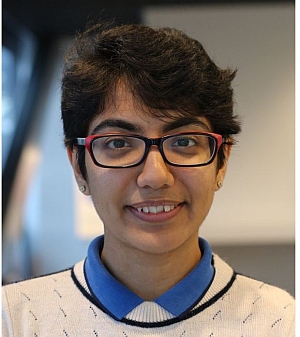
Our alumna, Dr. Drishti Wali (BT/CSE/2017), shares her experience of pursuing higher studies in a foreign university, talks about her current work with Microsoft as an Applied Scientist, and important life lessons learnt.
What are you currently pursuing and how is it in alignment with your major at IIT Kanpur?
I am currently working full-time at the Turing Division of Microsoft as an Applied Scientist. I work on designing and implementing state of the art Natural Language Processing models for immediate applications like email content recommendation. I use a lot of knowledge about computer science as well as engineering on a day-to-day basis, right from understanding the context of the problem or task, the right design to implement for the desired application and debugging a solution of mine or someone else’s.
How did you narrow down your interest in your major, and what are the things that directed you towards what you are doing today?
I was always eager to learn through experimentation and exploration via outside course projects and take the extra step beyond classroom education. This helped to ensure that I was absorbing the depth of knowledge and skills being taught but helping to retain and implement them on a day-to-day basis, including my current work. Keep an open mind towards the different career paths, interact with your peers - there is a lot one can learn from one’s peers but do try to develop a plan. It’s good to be flexible, but persistence and focus can help to achieve incredible goals.
What motivated you to choose academia over corporate after IIT Kanpur?
The truth is I am a nerd, which means I enjoy the nuances of the technical knowledge provided. I enjoyed the technical insights that my research experience was providing me. I wanted to follow that, and given that most of my prior learning had come in an academic setting, I felt that academia might be the best place for my continued growth.
What challenges did you face when you started your higher studies in a foreign university?

Could you elaborate on your research on Online Learning Algorithms and Coding Theory at Cornell University?

In Online Learning Algorithms, I worked mostly on the Multi-Armed bandit problem - looking mostly into its game-theoretic applications. My paper with my co-authors, Thodoris Lykouris and Eva Tardo, uses graphs to extract the similarities between multiple choices when using the multi-arm bandit algorithms to any decision making problem. We use a neat multi-layering argument to highlight the critical and key points which these algorithms use from their data. This also helps explain why they perform better on some data than others in the real world.
In Coding Theory, I mostly worked on Maximally Recoverable Error-Correcting Codes. These are codes that are designed specifically for a given network of computers that may share data. The aim is to use the minimal bits for the encoding of the data such that we can recover data even in case of the worst kind of system failure.
You started your career in this field as Summer Research Intern in IIT Delhi and EPFL, Switzerland and then chose to pursue a Master's in the same from Cornell University and now you are an Applied Scientist at Microsoft. Could you tell us about your journey and the role of IITK in shaping your career?


Did you face any challenges due to the low gender ratio during your college life or further in your career? What do you think is the reason for a low gender ratio in IITs and other foreign Universities? What impact does it have on women in research and innovation?
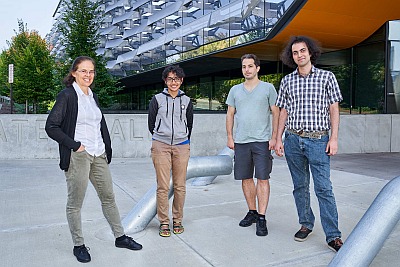
What are the non-academic activities you were involved in during your MS program?

What do you think is the significant difference between academic research in Indian universities compared to universities abroad?
I found that in the universities abroad the research was more concretely driven by a more immediate impact on society. IITs can feel more like a teaching institute than a research institute with the focus being on training the students towards education rather than conducting research useful to our society.
What are your views on improving research culture in India, and what do you think Indian universities should do to promote quality research?
I think we need to promote innovation and critical thinking as well as redesign our courses and education style towards helping students to connect their technical learning to their real lives. These changes are already being added to school education systems. By adding them to university education, particularly prestigious ones like IITs would help ensure that the bright and hard-working minds of our country will be bringing faster development in our lives. Funding in Indian universities has been an issue in the past as well as the craze to publish papers in high ranking conferences. I think those conferences are designed by countries leading different phases in their development so making sure we continue to emphasize the immediate impact and making sure that the students are guided well can go a long way.
What has been your biggest takeaway from studying in a foreign university?
Of how similar yet dissimilar humans are. It has questioned nearly every aspect of my life and my identity and also helped in providing clarity on what I value and how quickly things can change.
How has your experience been studying in a multicultural environment?
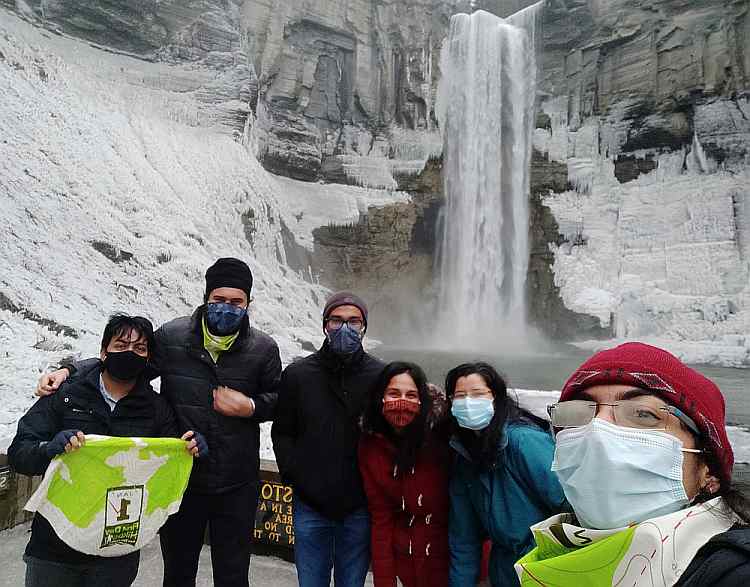
It has helped me to take a clear and hard look at myself even when what I see in the mirror is not something to be proud of. It has helped me to understand my strengths and weaknesses as well as adapt them according to my environment or my goals.
What have been your biggest life learnings after joining Cornell University?
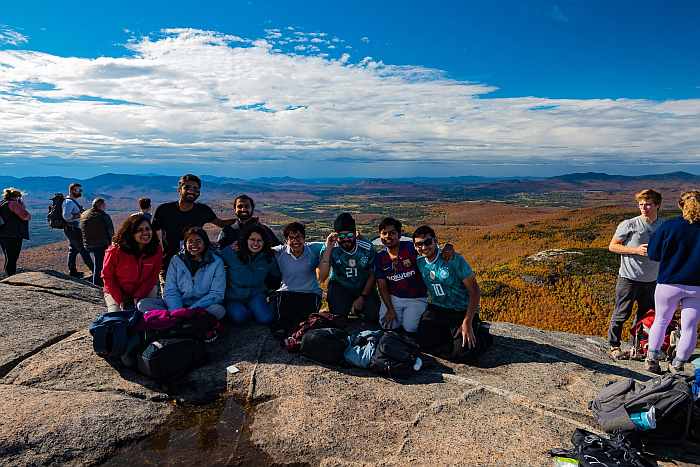
That life is a gift so cherish what you have. I’ve learnt to see life from multiple perspectives - my own as well as others and I’ve learnt to stand up and work for what I value.

The Hon'ble Prime Minister gave digital certificates to the 61 winners of Pradhan Mantri Rashtriya Bal Puraskar ( PMRBP), an initiative of Ministry of Women and Child Development, in a virtual event using the blockchain & self sovereign identity driven technology developed at IIT Kanpur. BlockChain and Self Sovereign Identity are being used for the first time by the Ministry of Women and Child Development with the support of IIT Kanpur for giving certificates to the awardees. The technology is being implemented by CRUBN Foundation, a startup incubated under National Blockchain Project of National Security Council Secretariat and C3i Innovation Hub, Technology Innovation Hub setup by the Department of Science and Technology, India at IIT Kanpur.

Public Policy and Opinion Cell, IIT Kanpur conducted a 3-day online session, with in-depth discussions on education & technology, careers with government, reforms & life beyond UPSC. Hon'ble Union Minister Shri Piyush Goyal of Minister of Commerce & Industry, Consumer Affairs & Food & Public Distribution and Textiles, GoI, was the Chief Guest.

Dr. K. Radhakrishnan got renominated as the Chairperson Board of Governors for the second term of three years by the Hon’ble President of India.

IITK established a new department of Space Science & Astronomy. The department will focus on instrumentation engineering, space robotics, and data analytics and establish partnerships with ISRO and other space industry and startups for R&D and capacity building.

IIT Kanpur and "Innovation for Defence Excellence" (iDEX) launched a program by the Defence Innovation Organization (DIO) (Ministry of Defence initiative) to make India self-reliant in the field of defence and defence production. IIT Kanpur will work with Innovation for Defence Excellence,India (iDEX) to nurture and mentor entrepreneurs and MSMEs to create, deploy and commercialize technologies and products for the Indian military and defence PSUs.

IITK has converted the interdisciplinary program in Design into a full fledged Department of Design. With the establishment of Department of Design, IITK will start the Bachelor of Design (BDes) as early as from next year. The program will encourage creativity, innovation, craftsmanship, and personal expression leading to the evolution of products and services in engineering , design and visual communications.
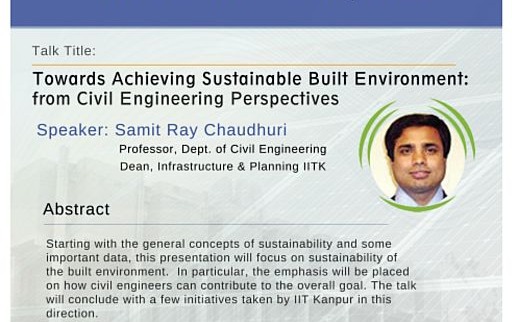
On the occasion of National Science Day, Prof. Samit Ray Chaudhuri, Dept. of Civil Engineering, IIT Kanpur, gave a talk on "Towards achieving sustainable built environment: From Civil Engineering Perspectives".
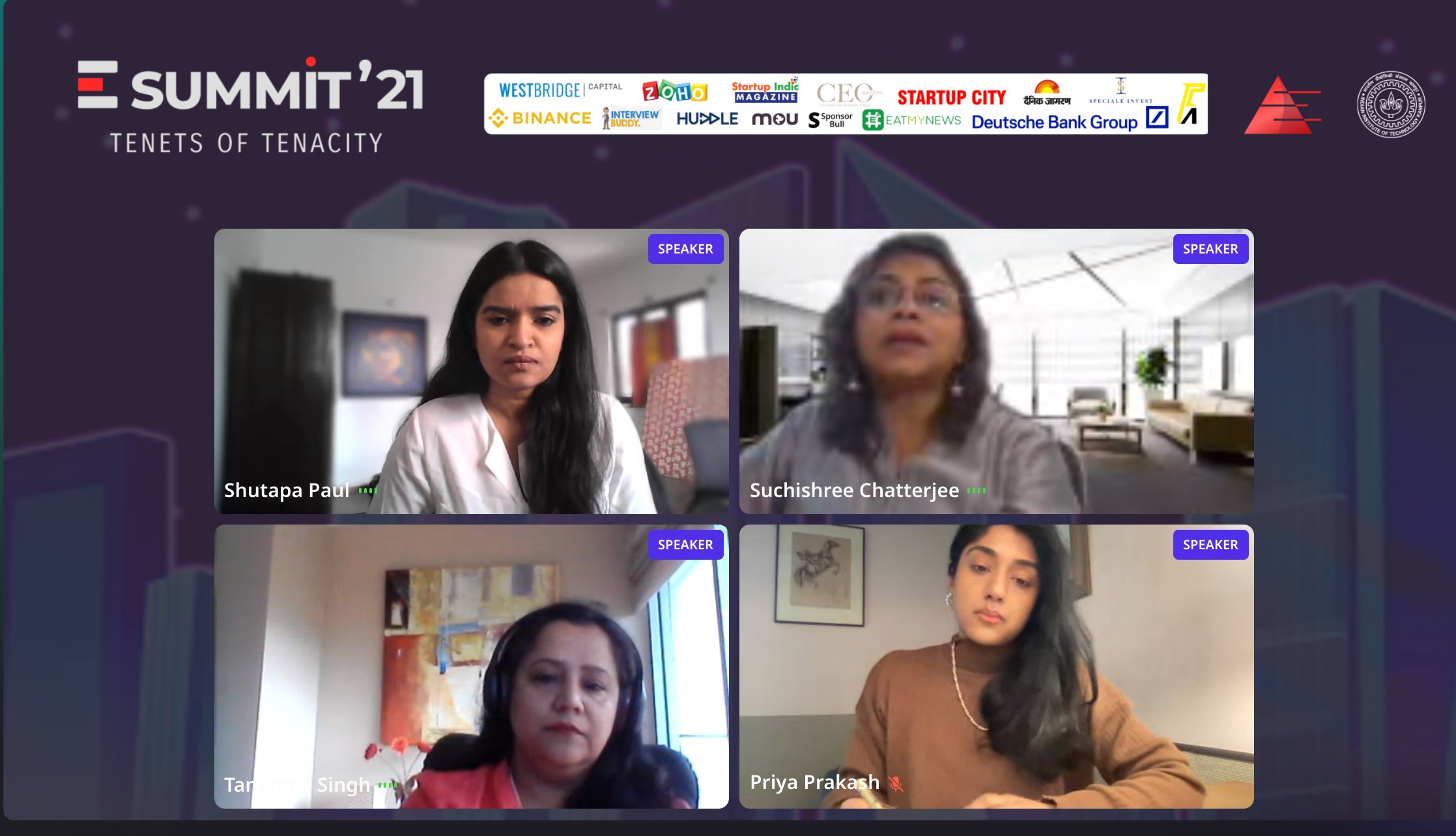
E-Summit'21, organised by E-Cell, IIT Kanpur from 21 - 23 Jan. 2022, had enriching sessions, panel discussions, workshops and different competitions covering pitchers 2.0, BizQuiz-Finals and Pitch Prime. A workshop on ‘Network with a Purpose’ by Mr. Sajjad Ahmed (S.Dir-HR, Capgemini), followed by ‘Corporate Canvas’ with inspiring journeys of Mr. Amar Nagaram (Myntra Ex-CEO), Mr. Niranjan Gupta (CFO, HeroMotoCorp) & Mr. Tapan Singhel (MD & CEO BajajAllianz). E-summit’21 welcomed the empowering women panelists for the Panel Discussion - ‘Breaking Stereotypes: Women Leading from the Front’, followed by enriching workshops on ‘Low-code: The Future of App Development’ by Zoho.
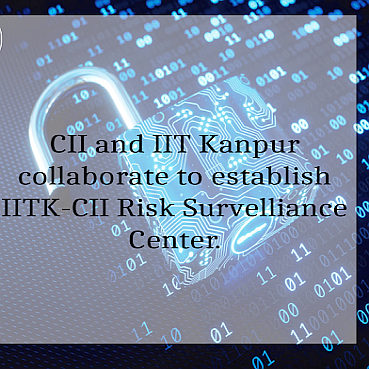
IIT Kanpur - Cll Risk Surveillance Centre- one of its kind Centre supported by industries was launched on 14 March. The Centre aims to develop models that provide reliable future course predictions and thus help make decisions driven by data. The centre also plans to research and evaluate the effectiveness of various policies and interventions in risk mitigation for specific domains based on data available at national and international levels. The Centre will be led by Prof. Manindra Agrawal.

The MoU for Center of Excellence (CoE) at IITK as a knowledge partner for the development of the UP Defense Corridor between IITK & UPEIDA aimed at development of defense technologies, was extended for a period of three years until Feb. 2025.

In a key development for the defence system of India, IIT Kanpur & Ordnance Factory Medak, a unit of Armored Vehicles Nigam Limited (AVNL), have jointly developed India’s first Soft Recovery System (SRS) for the supersonic projectile. A SRS is used for the recovery of a projectile after initial impact with minimal damage in the development phase. This helps ensure the development of smart and intelligent warheads that have maximum effectiveness while doing minimum collateral damage.

IIT Kanpur filed a record-breaking 107 patents in 2021. With an exceptional technology transfer rate to industry partners from the total patents filed, the institute has also witnessed a two-fold increase in revenues from technology licensing. The patents filed include a variety of inventions ranging from a reusable face mask consisting of PVDF composite nanofibers, nasal spray formulation against COVID19 and related respiratory viruses, Oxygen Concentrators, industrial wastewater treatment, biodegradable magnesium-based alloys for orthopedic applications, Bhu- Parikshak” - a soil testing device to detect soil health within 90 seconds.
Deputy Director, was awarded the prestigious J. C. Bose Fellowship by SERB , DST India.
got elected as Fellow of the Indian Academy of Sciences. Prof Ateeq’s research interest involves exploration of the genetic and epigenetic changes that initiate cancer and its progression. She is also focusing on understanding the molecular events that drive cancer metastases & resistance towards chemotherapeutic drugs.
got elected as Fellow of the Indian Academy of Sciences. Prof Shukla’s research focuses on understanding the structure and function of an important class of drug targets, known as G protein-coupled receptors (GPCRs), and leveraging this information to design better medicines with minimum side effects.
was awarded the Sun Pharma Science Foundation Research Award-2021 in the Medical Sciences- Basic Research category. Dr. Ateeq's research interest involves exploration of the genetic and epigenetic changes that initiate cancer and its progression. She is also focusing on understanding the molecular events that drive cancer metastases and resistance towards chemotherapeutic drugs.
got elected as a Fellow of the Association for Psychological Science, Washington, DC, USA. He currently serves as the Head of the Department of Humanities & Social Sciences, and his research area includes Cognitive Neuropsychology, Cognitive Factors in Design and Trauma Psychology.
was selected for the prestigious Wellcome/DBT Intermediate Fellowship. DBT/Wellcome Trust India Alliance is a public charity that funds high-quality biomedical and health research in India. Dr. Pydi was awarded an intermediate fellowship in the "basic biomedical research" category and the funding will support the research in his lab for the next 5 years.
has been elected as a Fellow of the Combustion Institute (CI), USA. He is the first Indian to be selected as a fellow to the Combustion Institute.
was appointed as the Editor of Transactions of the Indian National Academy of Engineering (INAE).
got elected as a member of the inaugural Editorial Advisory Board of High Entropy Alloys & Materials, (Springer-Nature).
has been invited to join the editorial board of Journal of Rheology. Prof. Joshi specializes in Rheology, Colloidal Glasses and Gels, and has research interests in Structure and dynamics of Colloidal Glasses and Gels, Soft Matter, Rheology of Complex Fluids, Polymer Science and Engineering, and Polymer Nanocomposites.
(BT/MT/ME/1972/1974)
Director of the Nimbkar Agricultural Research Institute, was awarded the Padma Shri award 2022 by the Govt. of India.
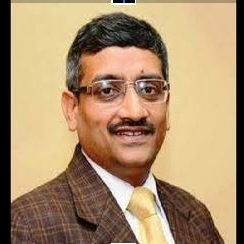
(BT/EE/1987)
got appointed as the Chief Secretary of Goa. He is an IAS officer of 1991 batch (AGMU Cadre). He has more than 25 years’ experience in the areas of Administration and Management, Energy and Power, Urban Water Supply and Financial Advisory.
(MSC2/PHY/1973)
was selected for the prestigious Boltzmann Medal 2022 in Physics. He is the first Indian to receive this honor. Prof. Dhar is an Emeritus Professor at IISER, Pune in the Department of Physics.
(BT/CSE/1983)
was appointed as the new Chief of Mumbai Police. He is a 1986 batch IPS officer.
(BT/CSE/1989)
got appointed as the Financial Services Secretary. The Department of Financial Services comes under the Ministry of Finance, and its mandate covers the functioning of banks, financial institutions, insurance companies and the National Pension System (NPS). Mr. Malhotra is IAS officer and MD of REC India Ltd.
(BT/MT/MME/1993/1995)
was selected as the Fellow of the American Association for the Advancement of Science (AAAS). Prof. Agarwal was elected for his distinguished contributions to advanced materials, plasma spraying and carbon nanotube composites, biomechanics, bioengineering, nanotechnology and graphene foam reinforced advanced materials for deicing, which is of great benefit to aerodynamics.
(MSC2/PHY/1987)
was named a 2021 Fellow of the American Association for the Advancement of Science (AAAS). Dr. Deshpande currently is a professor of Physics at Stony Brook University (State University of NY) with a joint appointment with Brookhaven National Laboratory (BNL).
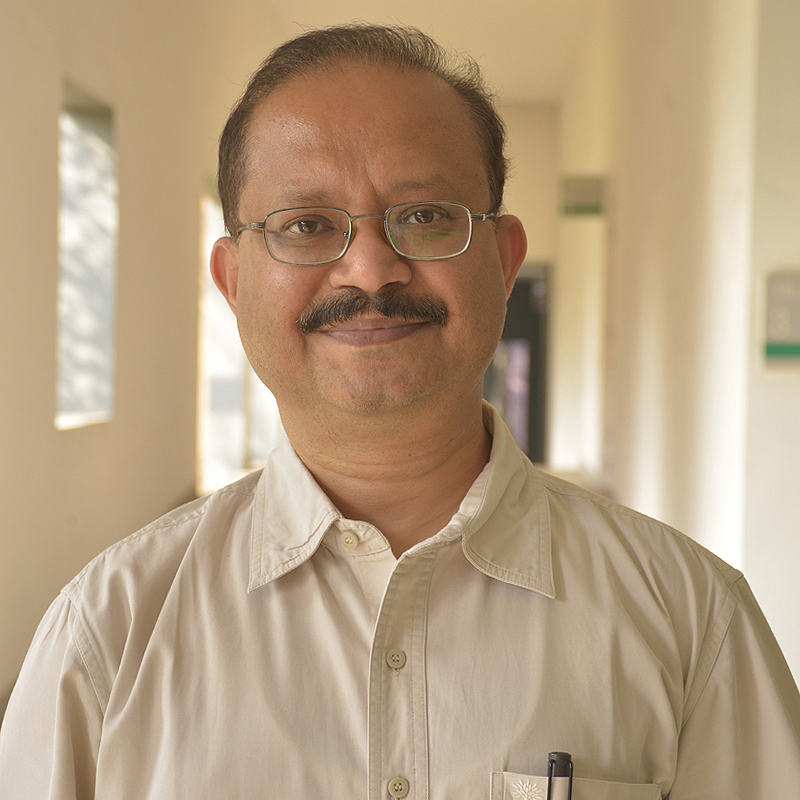
(BT/ME/1988)
took charge as the Director of Raman Research Institute, Bengaluru. He is a Senior gravitational waves and cosmology physicist. He was earlier a professor and Chair of the Physics Dept. of IISER, Pune.
(BT/EE/1977)
and his team received the US Department of Commerce Gold Medal Award 2021. The team is recognized for outstanding contributions in the design, standardization, and widespread deployment of technologies that resolve critical vulnerabilities in the internet’s routing infrastructure. The team, in collaboration with industry partners, developed innovative techniques to mitigate cyberattacks against the internet, subverting catastrophic failures.
(BT/ME/1989)
was appointed as the Managing Director of the Skoda Auto Volkswagen India. Mr. Arora has over 30 years of experience in the automotive industry and has extensive knowledge of the Indian market.
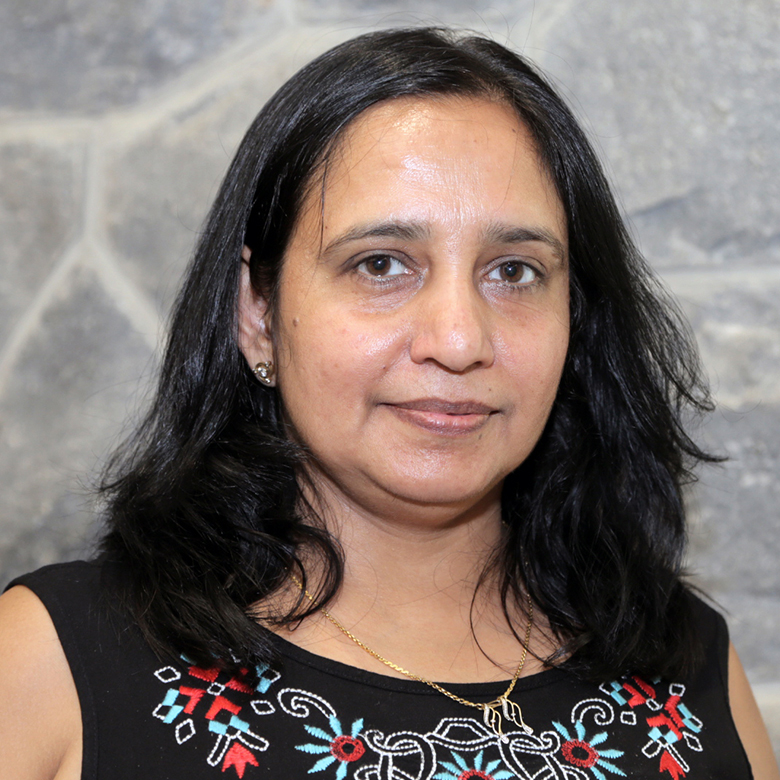
(MSC2/PhD/ 1991/2005)
start-up, Swajal, singed an MoU with Technology Development Board (TDB), a statutory body of Department of Science, to provide innovative technologies to make reliable clean drinking water accessible to communities at affordable price.

(BT/CSE/2007)
was awarded NSF CAREER grant for “Qurious: Methods for Making Erroneous Near-term Quantum Computers More Usable.” Prof. Tiwari is an Assistant Professor at Northeastern University College of Engineering.
(BT/EE/2010)
got elected as the 2022 Sloan Research Fellow. Dr. Kothari is an Assistant Professor in the Department of Computer Science at Carnegie Mellon University. His research focuses on the computational complexity of random instances of algorithmic problems arising in various application areas including machine learning, statistics, cryptography, and statistical physics.
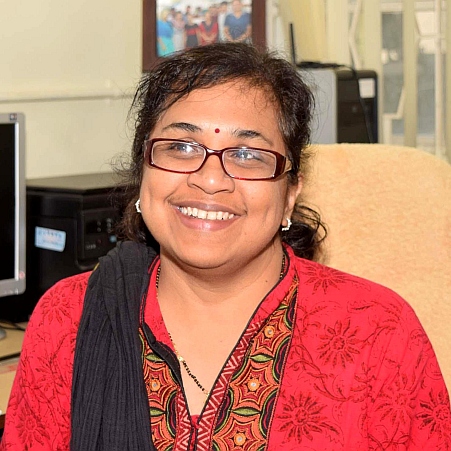
(MSC2/CHM/1990)
was awarded the prestigious SERB Power Fellowship. Dr. Sengupta is a Senior Principal Scientist at CSIR- Indian Institute of Chemical Biology, Kolkata.

IITK alumni got featured in DST publication '75 Under 50'. Prof. Nitin Saxena, Prof. Shiraz Minwalla, Prof. Jyotirmayee Dash, Dr. Chandra Shekhar Sharma, and Prof. Balasubramanian Gopal have been featured as Scientists Shaping Today's India.
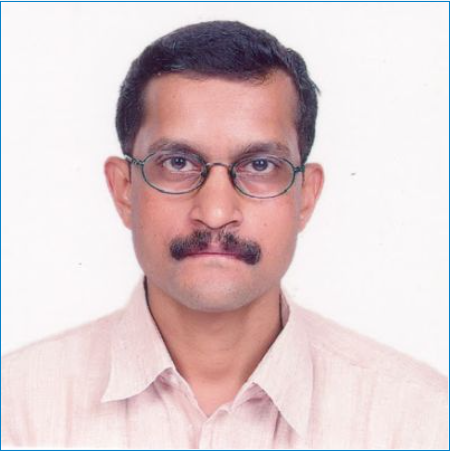
(MSC2/PHY/1993)
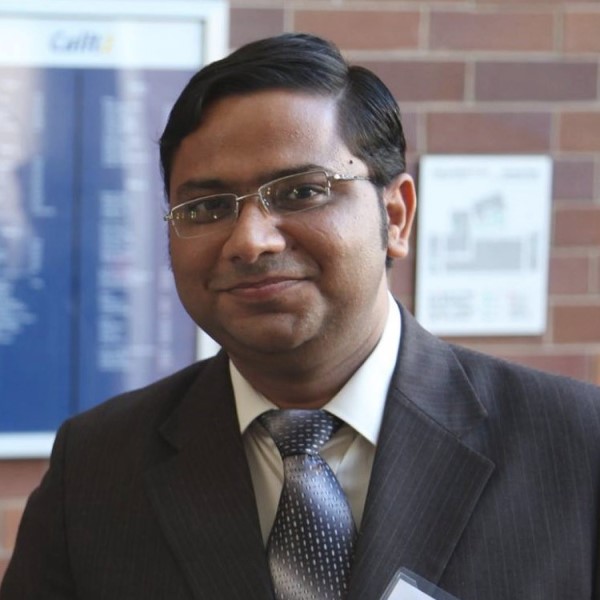
(PHD/CHE/2010)

(PHD/CHM/2003)
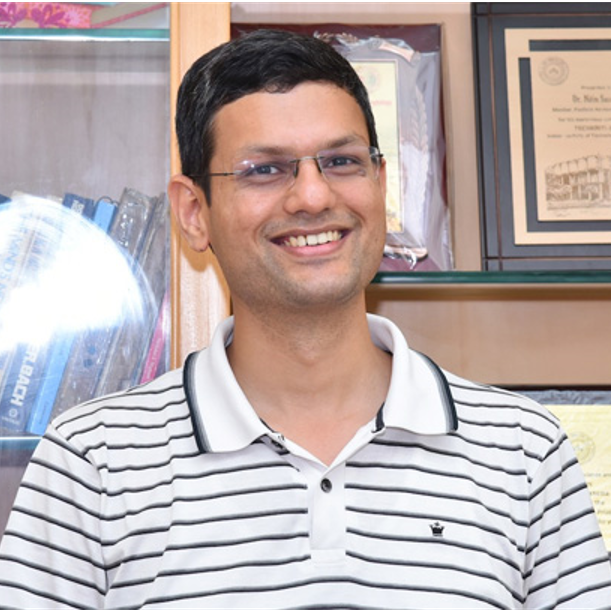
(BT/PHD/CSE/2002/2007)

(MSC2/PHY/1995)
donated US$ 380K towards establishing faculty chair and scholarships at IIT Kanpur. The Faculty Chair will promote excellence in research and leadership on freshwater resources and environmental degradation that affects human and planetary health. Under the scholarship program, ten student scholarships (a minimum of four scholarships are earmarked for female students) based on merit cum means will be instituted for 4-year BT/BS students of all departments.
contributed US$185K to establish the Toastmasters (TM) Club. The club will work with the Students Placement Office to enhance the students' communication & leadership skills & foster self-confidence & personal growth.